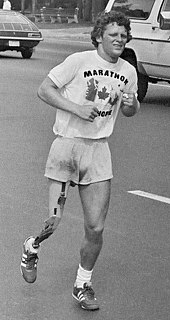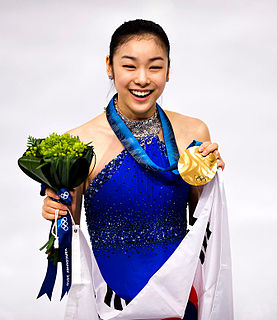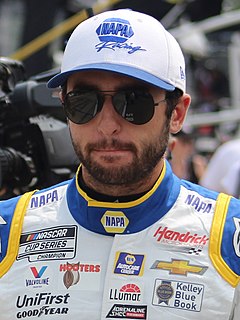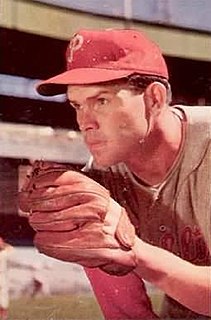A Quote by Suzanne Somers
When you receive a cancer diagnosis, you're more vulnerable than at any other time in your life. I've personally had the experience twice. My only hope for survival was alternatives. But that was my decision, what I thought was best for me.
Related Quotes
I had to stop hoping so much that a ship would rescue me. I should not count on outside help. Survival had to start with me. In my experience, a castaway’s worst mistake is to hope too much and to do too little. Survival starts by paying attention to what is close at hand and immediate. To look out with idle hope is tantamount to dreaming one’s life away.
More than just a moral issue, hope is a spiritual and even religious choice. Hope is not a feeling; it is a decision. And the decision for hope is based on what you believe at the deepest levels - what your most basic convictions are about the world and what the future holds - all based on your faith. You choose hope, not as a naive wish, but as a choice, with your eyes wide open to the reality of the world - just like the cynics who have not made the decision for hope.
There were definitely parts of my character I didn’t approve of, and maybe from time to time I had moments when I didn’t like myself much. But I got through each day as it came to me, and so far I’d survived every thing life had thrown at me. I could only hope that the survival was worth the price I’d paid.
What I learned, more than anything, was that you can't have it all balanced perfectly at any one time. When I was young, it was much more balanced toward work. When I had my children, it was much more balanced toward love and family, and I didn't get a lot of work done. So you can't ask of it to be perfectly balanced at any time, but your hope is, before you die, you've somehow had each of those spheres come to life. That's probably more important than success in any one of those spheres alone.
When I started it [non for profit], I thought, I'm not smart enough to do this. I had no experience in management, no experience in administration, no experience in nonprofit; but then this phrase came into my head: I only have to be smart enough to find people who are smarter than me; I only have to be smart enough to recognize who knows more than me.
The decision to get married will impact one's life more deeply than almost any decision in life. Yet people continue to rush into marriage with little or no preparation for making a marriage successful. In fact, many couples give far more attention to making plans for the wedding than making plans for marriage. The wedding festivities last only a few hours, while the marriage, we hope, will last for a lifetime
I had a lot of respect for what my dad did and the success that he had. I wanted to give it a try. He never forced me in any way to go this route. It was my decision. He would push me to work harder at it but only because it was my decision to race. If there was ever a day when I didn't want to do it any more, he would be fine.
I had literary interests my whole life. I decided at the age of five I was going to be a writer. So I had done a great deal of reading. I suppose I was more at home in Greenwich Village than, say, any of classmates from Warsaw High School. But in any case, it was an overwhelming experience for me. It took me some time to begin to assimilate it.



































